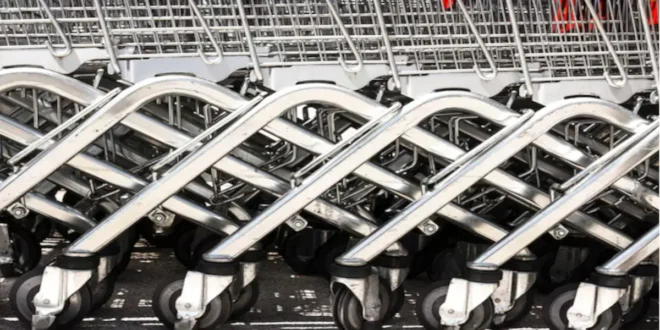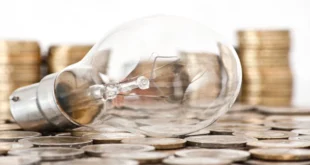Cardiff Metal Market: Key Trends, Challenges, and Future Insights
The Cardiff metal market, encompassing a variety of metal types, suppliers, and industries, serves as a vibrant hub for business and trade in South Wales. Metal markets in regional cities like Cardiff play a significant role in both local economies and the broader supply chain, where raw materials and finished metal products are in constant demand. This article takes an in-depth look at Cardiff’s metal market, covering its history, major sectors, types of metals in demand, and emerging trends. For industry players and potential investors alike, understanding the dynamics of Cardiff’s metal market opens up opportunities for growth and diversification.
1. An Overview of Cardiff’s Metal Market
Cardiff, as the capital of Wales, has a long-standing industrial heritage with roots in coal mining and steel production. Over the years, the city has transformed, with the metal industry evolving to meet the demands of modern manufacturing, construction, automotive, and technology sectors. Today, Cardiff’s metal market is a critical component of South Wales’ economic infrastructure, supplying materials not only locally but also throughout the United Kingdom and even internationally.
Historical Context
Historically, Cardiff’s economy was built on coal and steel, which spurred the development of its port and industrial districts. The coal industry declined in the late 20th century, leading Cardiff to diversify into other forms of manufacturing and metal processing. This shift has allowed Cardiff to maintain its status as a key player in the UK’s industrial landscape.
2. Key Sectors Driving the Demand for Metals in Cardiff
In Cardiff, several major industries drive the demand for metals, each requiring specific types and qualities to meet their unique needs. These sectors include:
a) Construction and Infrastructure
The construction industry in Cardiff has experienced steady growth, with the demand for metals like steel, aluminum, and copper playing a central role. Metals are needed for building structures, roofing, plumbing, electrical installations, and aesthetic finishes. Cardiff’s infrastructure projects, including residential developments, commercial complexes, and transport networks, heavily rely on a stable metal supply chain.
b) Manufacturing and Engineering
Manufacturing has a strong presence in Cardiff, with sectors like automotive, aerospace, and general engineering depending on metal supplies. Aluminum, steel, and alloys are in high demand for precision manufacturing, creating products that range from household items to intricate engineering components.
c) Technology and Electronics
The technology sector in Cardiff also contributes to the demand for specialized metals. With the growing interest in tech startups and electronic manufacturing, metals like copper (for wiring), rare earth elements, and even silver are sought after to produce electronic devices, batteries, and machinery.
d) Renewable Energy
As Cardiff moves towards sustainability, the renewable energy sector has become a significant consumer of metals. Projects involving wind turbines, solar panels, and electric vehicle (EV) infrastructure require metals such as steel, copper, lithium, and rare earth elements to manufacture components and storage systems. Cardiff’s commitment to green energy solutions further fuels this market.
3. Types of Metals in Demand in Cardiff
Different types of metals serve distinct purposes in Cardiff’s market, and understanding their uses and demand trends can provide insights into where the industry is headed. The most popular metals include:
a) Steel
Steel remains a staple in Cardiff’s metal market, largely due to its durability, versatility, and cost-effectiveness. It is widely used across the construction, manufacturing, and engineering industries, with applications ranging from structural beams and frames to pipelines and automotive components.
b) Aluminum
Known for its lightweight properties and resistance to corrosion, aluminum is increasingly popular in Cardiff, especially in the automotive and aerospace industries. Aluminum’s recyclability also makes it a preferred choice for companies with sustainability goals.
c) Copper
Copper’s conductivity makes it indispensable in the technology and electronics sectors. It’s used extensively in wiring, motors, and power generation, with Cardiff’s tech industry contributing to its local demand. Additionally, copper is in demand for plumbing and roofing in construction projects.
d) Specialty and Rare Earth Metals
As the tech and renewable energy sectors expand, so does the need for specialty metals like lithium, cobalt, and various rare earth elements. These metals are essential for batteries, solar panels, and advanced electronics, marking a new trend in Cardiff’s metal market.
4. Major Suppliers and Distribution Channels in Cardiff
Cardiff’s metal market relies on a network of suppliers, distributors, and resellers, each playing a role in the supply chain to ensure that businesses have access to the metals they need. Major suppliers in Cardiff often stock a variety of metals, from raw steel and aluminum to precision-engineered alloys.
Local Suppliers
Several local suppliers in Cardiff cater specifically to the region’s construction and manufacturing needs. They provide raw materials, processed metals, and even custom metalwork, enabling businesses to access a range of products locally without incurring high transportation costs.
National and International Imports
In addition to local suppliers, Cardiff’s metal market also benefits from national distributors and international imports. Many metals, especially rare earth elements, are not naturally abundant in the UK and are imported from countries like China, Australia, and the United States. The blend of local and international sourcing allows Cardiff’s market to stay competitive.
5. Trends and Innovations in Cardiff’s Metal Market
As technology advances and industries adapt, new trends and innovations are shaping Cardiff’s metal market.
a) Sustainability and Recycling
The focus on sustainable practices is transforming the metal industry in Cardiff. Recycling metals is becoming standard, reducing environmental impact and lowering costs. Recycled steel and aluminum, for example, are extensively reused in construction, cutting down the need for newly mined materials.
b) Smart Technologies in Metal Production
The adoption of smart technologies, including AI, IoT, and automation, is making Cardiff’s metal processing more efficient. IoT sensors are used to monitor equipment in real-time, reducing downtime and improving quality control in metal manufacturing.
c) Digital Supply Chain Solutions
With the complexities of metal supply chains, digital solutions are gaining popularity in Cardiff. Companies are now using software to track inventory, forecast demand, and manage logistics, streamlining operations and ensuring that supply meets demand.
d) Green Energy-Driven Metal Demand
The push towards green energy solutions has created an increase in demand for metals used in renewable technologies. Metals required for EV batteries, solar panels, and wind turbines are seeing growth in Cardiff, positioning the city as a potential hub for renewable energy infrastructure.
6. Opportunities and Challenges in Cardiff’s Metal Market
While Cardiff’s metal market offers a range of opportunities, it also faces several challenges. Here, we examine both the potential and the obstacles facing businesses within the industry.
Opportunities
- Growth in Construction and Manufacturing: The continued growth of Cardiff’s construction and manufacturing sectors promises a steady demand for metals. With urban expansion and infrastructure development, Cardiff remains a fertile ground for metal suppliers and distributors.
- Rise of Renewable Energy: The renewable energy sector in Cardiff opens doors for suppliers of metals used in wind, solar, and EV infrastructure, offering new revenue streams for metal companies.
- Digital Innovation: Embracing digital solutions can give companies in Cardiff a competitive edge, improving operational efficiency and customer satisfaction.
Challenges
- Supply Chain Volatility: Cardiff’s metal market, like others globally, is susceptible to supply chain disruptions, especially with imported metals. Tariffs, political issues, and logistical challenges can impact the supply and price of essential materials.
- Environmental Regulations: Stricter environmental laws regarding metal processing and emissions can present compliance challenges for Cardiff’s suppliers, pushing them to invest in cleaner technologies and practices.
- Price Fluctuations: The global metal market is subject to fluctuations, influenced by factors such as economic shifts, demand changes, and geopolitical events. Cardiff’s local businesses must navigate these changes to stay profitable.
7. Future Outlook for Cardiff’s Metal Market
Looking ahead, the metal market in Cardiff is set to grow, driven by advancements in technology, the demand for sustainable materials, and Cardiff’s ambitions in renewable energy. Emerging technologies like 3D printing, which uses metals such as titanium and stainless steel, may also open new market segments in Cardiff. Additionally, the focus on environmentally friendly practices and the recycling of metals are expected to grow, creating opportunities for businesses committed to sustainable solutions.
The digital transformation within the metal industry is another key area to watch. As Cardiff companies adopt smart technologies, the efficiency and transparency of the metal supply chain will improve, offering enhanced reliability for buyers and partners. Moreover, Cardiff’s strategic location, well-connected by road and sea, makes it an ideal distribution point, enhancing its role as a regional leader in metal trading and supply.
Conclusion
The Cardiff metal market is a dynamic and evolving sector, rooted in the city’s industrial past and primed for future growth. From construction and manufacturing to renewable energy and technology, Cardiff’s demand for metals continues to diversify. Although challenges like supply chain disruptions and environmental regulations present hurdles, the city’s commitment to innovation and sustainability keeps it competitive. By embracing new technologies and adapting to changing market demands, Cardiff’s metal market is well-positioned to meet the needs of the 21st century.
Whether you’re a business owner, investor, or industry enthusiast, Cardiff’s metal market offers numerous opportunities for growth and expansion. With its strategic location, skilled workforce, and supportive economic environment, Cardiff stands as a key player in the UK’s metal industry. As it moves forward, Cardiff’s metal market is set to not only contribute to the local economy but also play a vital role in the UK’s industrial landscape.
Frequently Asked Questions ((FAQs)
What types of metals are most in demand in Cardiff?
Cardiff’s metal market sees high demand for several metals, particularly steel, aluminum, copper, and specialty metals used in tech and renewable energy sectors. These metals serve various industries, from construction and engineering to technology and clean energy, each with unique needs that shape local market demand.
How does Cardiff’s construction industry affect the metal market?
The construction industry in Cardiff significantly drives demand for metals like steel, copper, and aluminum, needed for building frameworks, plumbing, and electrical installations. Cardiff’s continuous development in infrastructure and housing projects means a steady requirement for these materials, making construction a major factor in the local metal market.
What role does the renewable energy sector play in Cardiff’s metal demand?
As Cardiff leans toward sustainability, the renewable energy sector has become a substantial part of the metal market. Metals such as steel, copper, and lithium are essential for manufacturing components used in wind turbines, solar panels, and electric vehicle infrastructure, boosting demand for metals tied to green energy initiatives.
Are there local suppliers for metals in Cardiff, or is it mostly imported?
Cardiff has a mix of local suppliers and distributors that cater to various sectors, although some metals—especially rare earth elements—are imported due to limited availability in the UK. This blend of local and imported supplies ensures a balanced and competitive market to meet Cardiff’s industrial demands.
What challenges does Cardiff’s metal market face?
Cardiff’s metal market faces challenges such as supply chain disruptions, price fluctuations, and regulatory compliance on environmental impact. Importing metals, particularly specialty materials, can lead to volatility in pricing, while evolving regulations push local suppliers toward sustainable practices to meet industry standards.
How is Cardiff’s metal market expected to evolve in the future?
The future of Cardiff’s metal market is shaped by advances in technology, sustainability, and digital solutions. With trends toward smart manufacturing and renewable energy, Cardiff’s market is likely to see growth in demand for recycled metals, specialty alloys, and efficient supply chain technologies to streamline operations and reduce environmental impact.
READ ALSO: Muscat Securities Market: A Comprehensive Overview
 Touch Blog
Touch Blog



